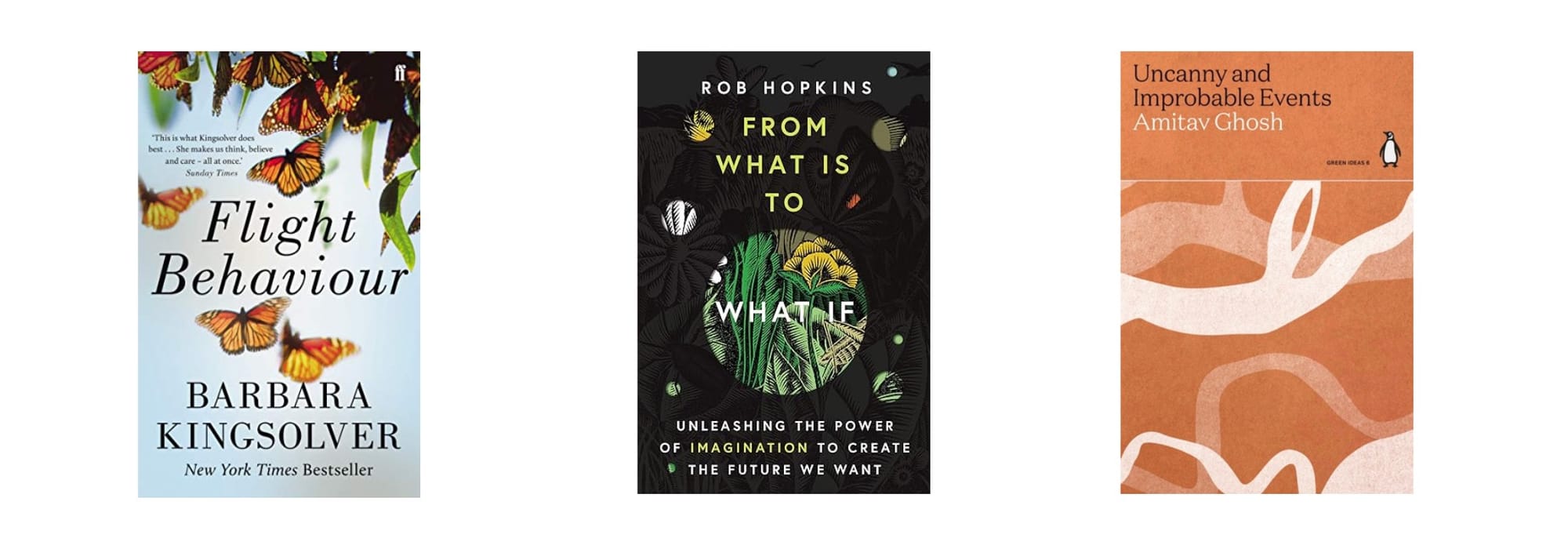
That satisfying feeling after finishing a good book, when an issue has been resolved within its pages, can leave us feeling motivated and at peace. Sharing this with like-minded people can be inspiring, empowering, and validating – so it’s no wonder people are using book clubs to address their eco concerns
Too often we feel helpless when confronted with the state our planet is in. From a warming climate to depleting wildlife, the problems are piling up and most of us are lost for solutions. Our collective imaginations are being clouded by the myriad of negative reporting on the environment, making it almost impossible to imagine a world free of these issues. This sense of fear about the future of our planet can have a negative impact on our mental health, evoking feelings of grief, helplessness, and stress – otherwise known as eco-anxiety.
The power of book clubs
Anyone who’s ever been to a book club, or just had a great conversation about a book, will understand the powerful sense of belonging and shared purpose this type of community can bring. Equally, you can feel challenged or confronted with different opinions, making you question your own standpoint. It’s all of these aspects of book clubs that make them the perfect platform to explore the climate crisis and, more importantly, what we’re going to do about it.
While book clubs have existed for centuries, growing awareness of our impact on the environment has meant that climate book clubs are gaining popularity. From virtual clubs like Blue Planet Bookshelf to in-person groups like This is Why We Read, more people want to be part of the discussion about how we tackle the climate crisis.
“It made me feel less isolated and alone,” says Kat, a member of Bristol-based book club This is Why We Read. But the benefits of discussing climate fiction don’t stop there, as the ability to share ideas with like-minded individuals can empower us. Similarly, sharing our grief or sadness can make us feel supported and heard.
Fiction or nonfiction?
Sarah Robertson, Associate Professor at UWE, launched This Is Why We Read’s book club after the success of a trial with students studying Environmental Management. “These students already had a lot of knowledge on the environment,” she says. “But literature opened up a different way of thinking for them.”
Hearing facts and statistics in the news can be overwhelming and difficult to comprehend. Working through a storyline offers a different way of grappling with these issues.
Reading fiction helps facilitate more personal conversations about the climate. For example, discussing Dry by Jarrod and Neal Shusterman helped readers see themselves in the characters, and their responses to the drought around them. This made readers think more practically about how they could conserve water, using tools like a water butt for the garden. Other members of the book club felt empowered to radically reduce their meat consumption.
Nonfiction is a great way to explore solutions to the environmental problems we’re facing. Instead of focusing on the emotions and experiences of a character or imagined world, you’re forced to look at the cold hard facts of reality. This can be more challenging, but certainly has benefits. It’s an excellent tool to play out conversations with climate deniers by equipping yourself with coherent facts. How to Talk to a Science Denier by Lee McIntyre is an obvious choice if your book club members are struggling to convey their concerns to people around them.
Sarah hopes that, whether discussing fiction or nonfiction, climate book clubs will make the crisis an “everyday part of our discussions, rather than something that sits on the margins and becomes more terrifying because we’re not talking about it”.
How can I get involved?
If you’re already a member of a book club, why not take part in the This is Why We Read climate book challenge? Book clubs across the country are including at least one climate-related book in their reading list each year. From fantasy to realism, post-colonial or books in translation, the selection of climate books is vast and ever-growing. So, where will you begin?
Flight Behaviour by Barbara Kingsolver
Dealing with overlapping issues such as poverty and climate denial, this book follows a protagonist who is new to the world of environmentalism, and is a brilliant introduction to climate fiction.
(Faber & Faber, RRP £9.99)
From What is to What If by Rob Hopkins
This nonfiction book, written by the founder of the International Transition Towns movement, helps us to imagine the world we want to create, along with how we’re going to get there.
(Chelsea Green Publishing, RRP £11.99)
Uncanny and Improbable Events by Amitav Ghosh
A selection of short stories by India’s 2018 Jnanpith award-winning author. Through varying narratives, Ghosh explores how we fail to grasp the scale of environmental destruction.
(Penguin Books, RRP £4.99)


